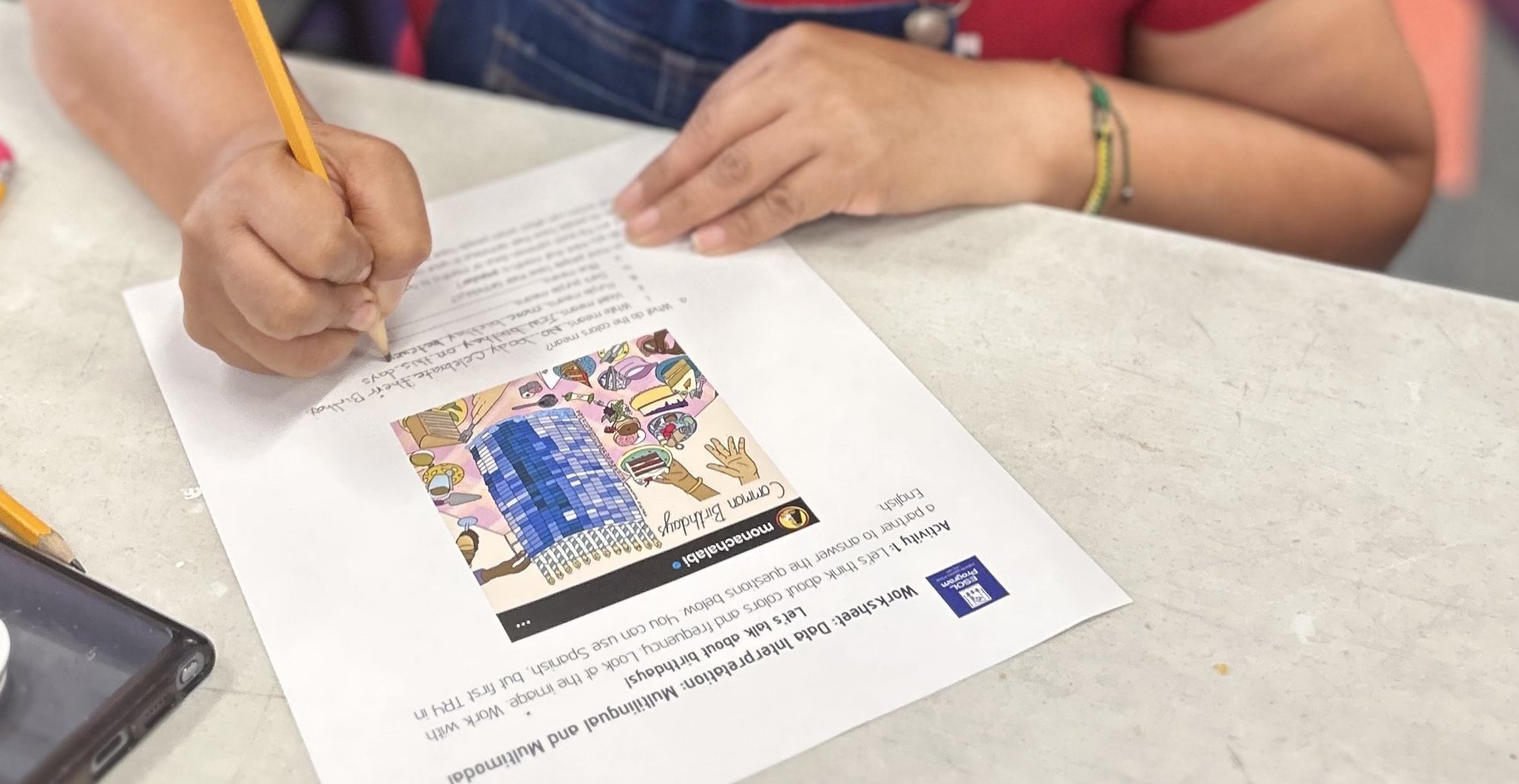The Communicative Justice Initiative brings together adult education, public health, and data science.
Adult learners have powerful stories that should be part of the data that informs what we know about the health and well-being of linguistically diverse populations in the U.S. Rarely do they find opportunities to share these interpretations and experiences—with other learners, local communities, and public health professionals.
CJI seeks to change the way we see health data by changing the way we engage adult learners from linguistically diverse communities.
Teaching CJI Activities
Our CJI activities aim to promote learner talk and interaction around data, with the following principles in mind:
Learners need to play with data - they need frequent, scaffolded opportunities to test out the meaning in data.
Learners need to see themselves in data - they need opportunities to explore the world of data through their own eyes, from their own experience.
Learners need practice ‘speaking data’ - our learners can learn to ‘speak data’ in English — but English is not the only language we can use to ‘speak data’. We should support learners’ use of everyday language, first languages, science language, math language, even their use of imperfect English, as valuable resources for meaning-making.
We invite you to look for these principles in our activities. We also invite you to develop your own activities that put these principles to work and cultivate a community of data storytellers in your own classroom.
What teachers are saying:
“[Communicative justice gave me] another way to teach listening, speaking, reading, writing. Data literacy [is] also part of those skills. It becomes…another avenue to explore a topic that students are interested in.”
Emily Gable
“Learning about communicative justice] made me more aware of the data that is everywhere and more intentional about incorporating it into my ongoing work with learners – as well as in my own life and attempts at activism.”
Hilary Estes
HE
“Now I understand the implications and the seriousness, the gravity of consent, and my ethics and responsibilities. I've made that transition from just [being] free-spirited [around talking about data] with my groups of students to ‘let’s consider [the purpose for talking about data]’ before we dive right in.”
Don Curtis
DC
“...Throughout many years of teaching within the ESL and adult basic education field, there has not been a lot of emphasis [on data literacy]. There needs to be. The students told me that they want to learn this, and it's important to them.”
Shery Ruff
SR
“I think communicative justice [addresses] who gets to tell the story and how, and who decides what is true or what is accepted as the narrative that we're all going to believe and follow along with. That was the thing that interested me most.”
Bonnie Taylor





